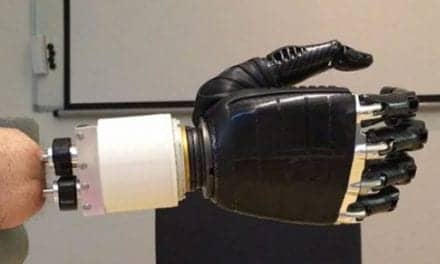Toyota Mobility Foundation has revealed the five finalists in its $4 million global Mobility Unlimited Challenge. The finalists, which include teams from around the world, were announced at CES 2019, held recently in Las Vegas.
The five finalists are:
- The Evowalk: Evolution Devices (United States) – a non-intrusive sleeve which goes around the user’s leg and has sensors that track the user’s walking motion and will stimulate the right muscles at the right time to improve mobility.
- Moby: Italdesign (Italy) – an integrated network of wheel-on powered devices, allowing users of manual wheelchairs the convenience and benefits of a powered chair, accessible via an app-based share scheme.
- Phoenix Ai Ultralight Wheelchair: Phoenix Instinct (United Kingdom) – an ultra-lightweight, self-balancing, intelligent wheelchair which eliminates painful vibrations.
- Qolo (Quality of Life with Locomotion): Team Qolo, University of Tsukuba, (Japan) – a mobile exoskeleton on wheels, allowing users to sit or stand with ease.
- Quix: IHMC & MYOLYN (United States) – a highly mobile, powered exoskeleton offering fast, stable and agile upright mobility.
The Toyota Mobility Foundation, in partnership with Nesta’s Challenge Prize Centre, launched the $4 million global challenge in 2017 with the aim of improving the lives of people with lower-limb paralysis.
Eighty entries were received from specialist teams in 28 countries globally. The finalists were chosen by a panel of expert judges.
Each of the five finalists will receive a grant of $500,000 to develop their concept further, with the final winner of the Challenge receiving $1 million in Tokyo in 2020, according to a media release from Toyota Motor North America.
“There are so many technological opportunities to explore approaches to alleviate challenges stemming from lower-limb paralysis. A competition like the Mobility Unlimited Challenge gets innovators to focus on the same problem to identify something of great common interest that serves society,” says Dr. Eric Krotkov, chief science officer at Toyota Research Institute and one of the judges of the Challenge, in the release.
In addition to the $500,000 grant, the finalists will attend tailored workshops, receive mentoring opportunities with engineering experts, and collaborate with end users to further the development of their concepts through to 2020.
“These five finalists have shown real innovation driven by human-centered design. We think that the technology incorporated in these devices could change the lives of a huge number of people around the world, not just for people with lower-limb paralysis, but also those with a wider range of mobility needs,” states Ryan Klem, director of orograms for Toyota Mobility Foundation, in the release.
“It will be fascinating to follow the teams’ journeys and see how the $500,000 grant will help them develop their ideas to bring to market and get them into users’ hands,” he adds.
To ensure entries from organizations of all sizes, the Challenge also offered 10 teams seed funding in the form of $50,000 Discovery Award grants during the entry period. Of the ten Discovery Award winners, four went on to be selected as finalists.
“Current personal mobility devices are often unable to fully meet the needs of users due to limitations affecting functionality and usability. Historically, the pace of innovation is slow, due to small and fragmented markets and difficulties in getting new technology funded by health-care systems and insurers. This can make the field unattractive to the very people who could help change the world,” comments Charlotte Macken of Nesta’s Challenge Prize Centre, in the release.
“We hope that challenges like this can inspire innovation and are excited to see how the five finalists use this opportunity to develop their ideas further.”
[Source(s): Toyota Motor North America, PR Newswire]





